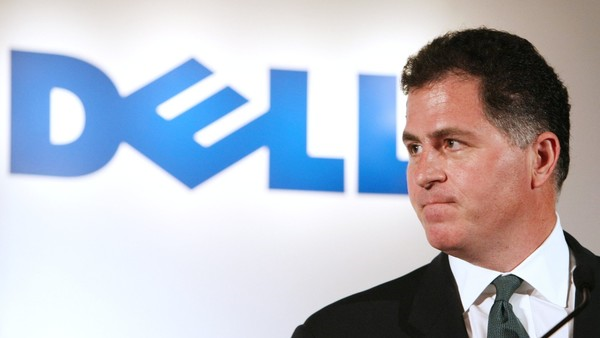|
May 31, 2016 6:33 pm
Delaware court finds
Dell’s $24bn buyout underpaid investors
James Fontanella-Khan and
Leslie Hook in New York
|

©Bloomberg |
Michael Dell
and Silver Lake could be forced to pay millions of dollars to former
Dell shareholders after a court ruled they significantly underpaid
investors in the $24bn
buyout of the PC maker
in 2013.
A Delaware
judge ruled
on Tuesday that Dell shareholders should have been paid $17.62 per
share instead of the $13.75 paid by Mr Dell, who owned a little under
16 per cent of the company, and the US private equity group.
The ruling, which Mr Dell and Silver Lake can
appeal, could cost the buyers about $20m as about 5.2m shares are
still eligible for appraisal, according to court documents.
“The sale process functioned imperfectly as a
price discovery tool, both during the pre-signing and post-signing
phases,” said Travis Laster, vice-chancellor of Delaware’s special
corporate court.
The ruling is a black eye for Mr Dell and
Silver Lake, which were attacked at the time for underpaying and then
changing the voting rules to prevent the offer being blocked.
Magnetar Capital, a hedge fund, could net about
$15m as it has legal rights to about 3.8m shares.
Dell’s $24bn sale to its founder came under
scrutiny as many investors believed Mr Dell was conflicted: playing
seller and buyer at the same time. A spokesperson for Dell declined to
comment on Tuesday’s ruling.
In the wake of the financial crisis, Dell’s PC
sales had slipped, causing share prices to fall — and presenting Mr
Dell with an opportunity.
The efforts by Mr Dell and Silver Lake to take
Dell private were contested by shareholders from the beginning.
Shareholders who opposed the deal included billionaire activist Carl
Icahn as well as T Rowe Price, which believed the market was
underpricing Dell.
Opposition from shareholders forced the bidding
group to delay the shareholder vote three times, and twice sweeten
their offer, before the deal was passed.
| |
“
The sale process functioned imperfectly as a price discovery
tool
”
- Travis Laster,
vice-chancellor of Delaware’s special corporate court |
When it came time for the final vote, T Rowe
Price accidentally voted its shares in favour of the deal, despite
being publicly opposed to it, a move that means it is now disqualified
from receiving any payout under the court ruling. T Rowe Price could
have claimed more than $100m if it had voted against the deal.
The court’s ruling also raises questions about
the role played by bankers and lawyers advising Dell’s board on the
sale. JPMorgan Chase and Evercore acted as the Dell board’s financial
adviser, while Debevoise & Plimpton was its legal counsel.
Several rival proposals,
including
one from Carl Icahn
and another from
Blackstone,
were made after Mr Dell’s first bid was made but none turned into
serious bids.
Gary Lutin, chairman of the Shareholder
Forum, said the ruling would have little impact on Dell’s planned
$62bn cash and shares
acquisition of EMC,
the data storage maker. “The financial impact of it will be
negligible,” he said. He added the case was a legal milestone for
clearing up confusion around appraisals in private equity buyouts,
which typically leverage the difference between the market value of a
company and its intrinsic, long-term value.
.
|
© The Financial Times Ltd 2016 |
|
